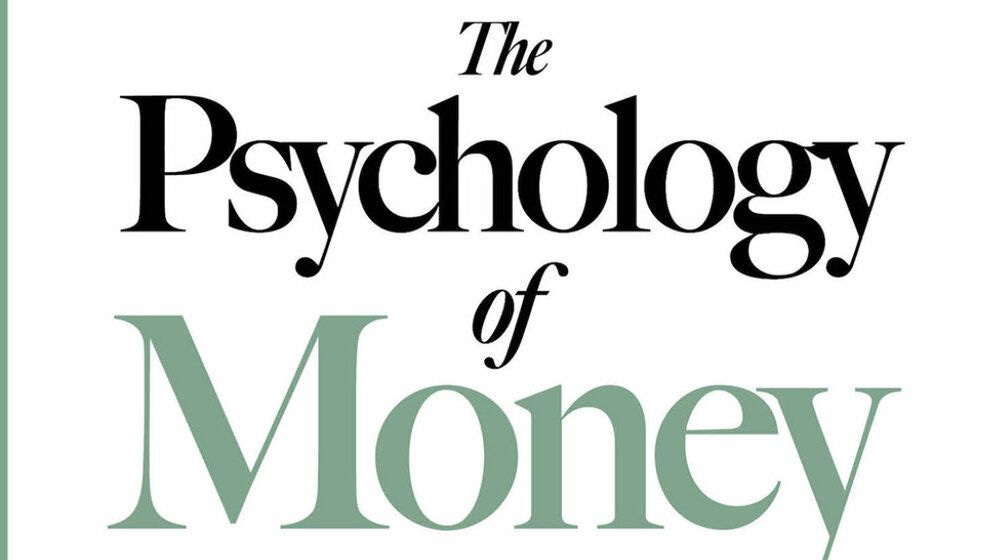Hey friends, everybody has their problems but most of the issues we face daily are because of money. Money runs the entire economy and understanding the money is the best bet you can make to have a peaceful life.
About The Author:
Morgan Housel is a partner at The Collaborative Fund and a former columnist at The Motley Fool and The Wall Street Journal. Morgan is a holder of many awards in Financial Journalism and the Psychology of Money is the third book published on September 8, 2020.
Summary:
Housel’s primary focus is the relationship between people and money, emphasizing the human variable of the equation. “To grasp why people bury themselves in debt you don’t need to study interest rates; you need to study the history of greed, insecurity, and optimism.”In the book, Housel explores each human behavior or attitude towards money with a short story or example.
Highlights:
There are many good points in the book, which might give a healthy perspective on how to behave or rather act with your money. Morgan says this book’s premise is that doing well with money has little to do with how smart you are and a lot to do with how you behave. Here are some highlights from the book which struck a chord with me:
Everyone has a unique idea of how the world works. This worldview is influenced by a unique set of circumstances, values, and external influences.
No amount of studying or open-mindedness can genuinely recreate the power of fear and uncertainty.
Outcomes are determined by more than effort. Luck and risk often figure prominently in the individual outcome
Luck and risk are both the reality that every outcome in life is guided by forces other than individual effort…they both happen because the world is too complex to allow 100% of your actions to dictate 100% of your outcomes.
Getting money and keeping money are entirely different things and require entirely different mindsets and strategies.
When you see someone driving a nice car, you rarely think, ‘Wow, the guy driving that car is cool.’ Instead, you think, ‘Wow, if I had that car people would think I’m cool.’ Subconscious or not, this is how people think.
Housel reminds us that when people say they want to be millionaires, what it really means is that they want to spend a million dollars.
Spending a million dollars is “literally the opposite of being a millionaire.”
Your savings rate is more important than your income or investment returns.
“The flexibility and control over your time is an unseen return on wealth.”
The best plan is to plan for things to not go according to plan.
Minimize the impact of failure by avoiding single points of failure.
Accept the reality that individuals are prone to change. What matters to you today, may be viewed as inconsequential in a decade.
When you invest in the long term, you need to be willing to accept the short-term price of market fluctuations.
Growth is driven by compounding, which always takes time. Destruction is driven by single points of failure, which can happen in seconds, and loss of confidence can happen in an instant.
Everyone has an incomplete view of the world. But we form a complete narrative to fill in the gaps.
These points actually when taken the time to understand will make a lot more sense. The more examples you read from the book the clearer you get with the points. In the last chapter (Confessions), Housel highlights some of his financial behaviors and beliefs:
Independence drives all of Housel’s financial decisions.
Maintains 20% of his assets in cash (outside of the value of his primary home). He does this to maintain a safety net and to avoid being forced to sell his stock market investments in an emergency.
Three key elements of Housel’s approach: are a high savings rate, patience, and long-term optimism.
Most of the examples and concepts in the book are related to American history but we can learn the core concepts from the book no matter where we are reading from. Though the reference is not understandable; it shapes the view of how money is viewed in another country and our country. We can figure out where we are wrong and adjust to do the right thing. We can improve on those.
Takeaways:
This book is an excellent guide on how money must be treated and how we must act based on the money we tend to accumulate.
If I have to give you one favorite quote from this book, then this will be it:
The amount of savings we do matters more than the profit, investment strategies, and salary gains we obtain.
You can grab the hard copy from here: The Psychology Of Money.
You can read more of Morgan's work on his blog: Collaborative Fund.



